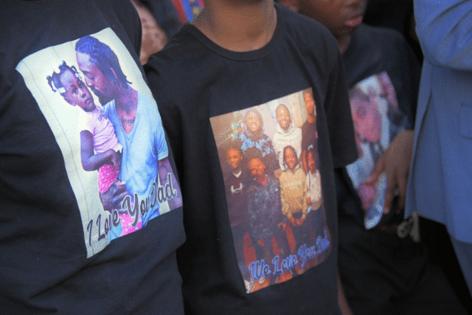Commentary: Workers are bearing the brunt of extreme heat
Published in Op Eds
Ronald Silver II, a sanitation worker in Baltimore, won’t be spending this Labor Day weekend with his family. On Aug. 2, during a sweltering 100-degree heatwave, Silver died while working a shift in a city garbage truck.
His death was preventable. In July, following worker complaints, Baltimore’s inspector general reviewed conditions in the city’s Department of Public Works. Employees, the IG found, “do not have adequate access to water, ice or fans to combat intense summer heat,” as reported by The Baltimore Sun.
This problem goes far beyond Baltimore. Every year, tens of millions of U.S. workers in both indoor and outdoor settings face the dangers of extreme heat.
Climate change means rising global temperatures and also increased humidity, which interferes with the evaporation of sweat, the body’s natural cooling mechanism. And because temperatures are also now higher at night, it’s more difficult for workers to recover by resting up and cooling down after long hours.
The consequences are severe. Heat exhaustion and heat stroke, which develop with little warning, are becoming more common. Baltimore’s medical examiner found that Silver died from hyperthermia, the most severe form of heat stroke, which can lead to multiple, fatal organ failures.
Public Citizen projects that extreme heat kills about 2,000 workers annually, and another 170,000 suffer heat-related injuries and illnesses. These numbers are certainly an underestimate, as heat may contribute to heart attacks or respiratory failures that are not always recorded as heat-related.
As we observe Labor Day, a holiday intended to honor American workers, it’s clear that we need basic heat protections. Currently, no federal standard exists, and only five states — California, Colorado, Minnesota, Oregon and Washington — have statewide heat safety requirements. In the remaining 45 states, which account for 80% of the U.S. population, workers are out of luck.
Despite the danger, some employers continue to resist the implementation of a heat standard, arguing that it would be burdensome or costly. However, this shortsighted stance is actually bad for business.
According to one scientific estimate, lost productivity due to heat-related illness, for outdoor workers alone, costs the U.S. economy more than $90 billion a year. Most importantly, protecting workers from extreme heat not only boosts productivity, it saves lives. Ignoring basic safety measures devalues the very people who drive our economy.
Here’s the good news: Workers are looking out for themselves.
First, a process is underway to create a federal heat standard. That’s because the Biden administration is responding to demands for a heat standard, spurred by a petition from unions, public health groups and safety advocates — including my organization, the National Council for Occupational Safety and Health (National COSH). A proposed nationwide standard, which requires employers to provide training on how to recognize heat illness as well as delivering access to rest, water and shade, was introduced in July and will soon be open for public comment.
Getting new federal regulations in place takes a while, and will face inevitable legal challenges from employers. Workers are not willing to risk getting sick or dying during more summers of grueling heat.
That’s why labor and safety groups are also successfully advocating for new local and state heat safety rules. In California, a new standard now protects 1.4 million indoor workers, who were previously excluded. The Arizona Heat Coalition has secured local ordinances in Phoenix, Tucson and Pima County, mandating access to rest, shade and water for contractors. This includes workers at Phoenix’s Sky Harbor Airport, where temperatures can exceed 110 degrees.
Meanwhile, in Maryland, a proposed statewide heat safety standard, developed with input from National COSH advisers, has been published and will likely be in effect by next summer. Safety expert Jordan Barab notes that if such a standard had been in place this summer, Ronald Silver might still be alive: “He would have had access to water and rest breaks. If he had gotten sick anyway, his trained co-workers would have immediately recognized the signs of heat illness and implemented the emergency response program.”
As our planet continues to warm, our workplaces will become even hotter. Here’s a prediction that’s more reliable than any weather report: Workers will continue to turn up the heat, demanding action to save lives from employers and elected officials.
____
Jessica E. Martinez is executive director of the National Council for Occupational Safety and Health. This column was produced for Progressive Perspectives, a project of The Progressive magazine, and distributed by Tribune News Service.
___
©2024 Tribune Content Agency, LLC.




























































Comments